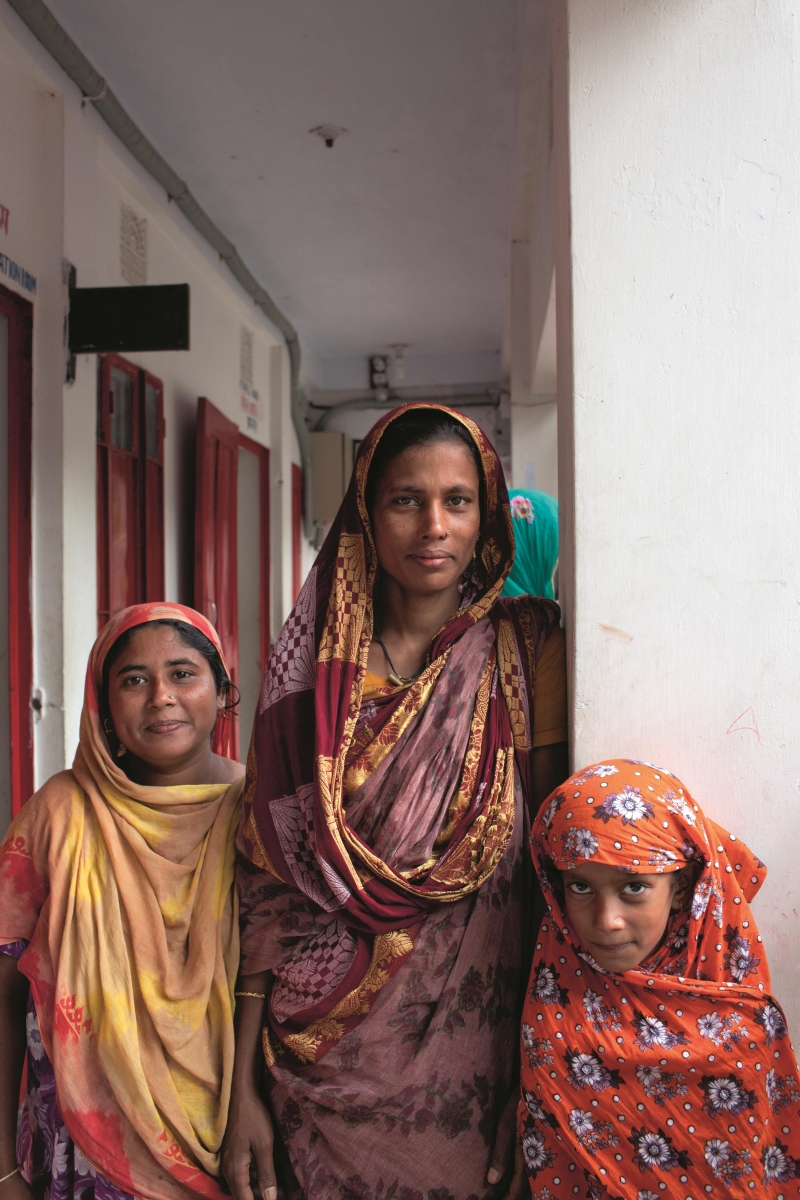On August 1, 1971, a major concert for aid to Bangladesh was organized by George Harrison and Ravi Shankar at Madison Square Garden in New York. Well-known artists selflessly contributed to do something for the country that suffered so much from the effects of Cyclone Bhola (1970) and the struggle for independence. (The independent state of Bangladesh became a reality in March 1971). As a student, Prof. Dr. Lex Peters, founder of the Female Cancer Foundation, was impressed by one of the first concerts organized to assist people who had lost almost everything. Awareness and solidarity, which does not stop at the door of your house or the borders of your country.
My friend came to me
With sadness in his eyes
He told me that he wanted help
Before his country diesAlthough I couldn't feel the pain
I know I had to try
Now I'm asking all of you
To help us save some livesBangladesh. Bangladesh
Where so many people are dying fastAnd it sure looks like a mess
I've never seen such distress
Now won't you lend your hand and understand?
Relieve the people of Bangladesh(George Harrison)
The concert for Bangladesh: The music has stopped but help is still needed
Unfortunately, Bangladesh's problems are not over. Constantly the country is ravaged by cyclones and floods or political instability. For a moment, the country gets attention when a sewing workshop collapses and we feel guilty that we are still grabbing bins for cheap "fashion," made in the country where child labor is common and working conditions are for crying out loud. Yet the country also shows its strength.
Women in particular, as the engine of society, do everything they can to survive the disasters and care for their children. Moreover, in northern and southern Bangladesh, these women have little or no access to health facilities, given the distance and floods, and die unnecessarily from preventable diseases. Cervical cancer is one such disease. Along with Nepal, Bangladesh is the country in Asia with the highest incidence of cervical cancer. And then we do not know how big the problem really is, because most women who die, especially also from cervical cancer, never reach a hospital: they die without diagnosis and also without help in isolation without pain relief.
Together with our partners, the Female Cancer Foundation (FCF) is trying to put an end to this. In the north, we are doing this with the Friendship Foundation. They try, in areas that flood regularly, to bring care to the people with boats and "outstations." In the south, the SLOPB Foundation does the same with its "outreach program" and mobile clinics, using an ambulance thanks to Female Cancer Foundation.
It is impressive to see how simple means can reach and educate women in the most remote places about cervical cancer, breast cancer and other aspects of "sexual and reproductive health and rights." To do this, community health workers who have the confidence of the women in this community, supported by women (as well as men) "in authority," are used. Knowing that almost all of these women have faced cervical cancer in their family or village at one time or another, participation in the FCF "See & Treat" program is very high. In addition to prevention, treatment or "palliative care" is addressed when referral to a local hospital is necessary (Comprehensive Cancer Care).
During his visit, Lex Peters was able to see with his own eyes how hundreds of women were educated, screened and, if necessary, treated. And.... with expertise and respect! Table vinegar was everywhere in large quantities and almost always liquid nitrogen treatment could be performed during the initial examination. Cell phones were often used during follow-up, now that they are frequently used by almost everyone and everywhere.
The collaboration with the local partners of Female Cancer Foundation is working towards sustainability from the beginning. FCF stays involved for training and supervision for a maximum of 5 years. Then the partners must be able to do it themselves. Lex Peters is also very optimistic about this.
"In the Deep South, after a long drive over almost impassable roads, I came to a small village, where a temporary clinic had been set up in the house of one of the residents to run the " See & Treat" program. The "medical assistant" (an otherwise trained nurse) and the nurse herself educate the women. There was amazed looks and laughter, with the waiting women advising each other to be especially screened. And with success. It was an extraordinary experience to see that under bizarre and primitive conditions this care could be provided. The women experienced that they mattered. On the way back, I visited the coordinator who had prepared "the camp" with his team. The imam, the village elder, the policeman, the health worker, the school teacher and the "community nurse" showed their commitment and would join forces to support the program and make it permanent."
It is special and emotional to see what Female Cancer Foundation has already accomplished with the help of its donors. We all want to continue to provide that care and we continue to need your support to do so.
Maybe then we can make another lyric for the lines "Bangladesh, Bangladesh, where so many people are dying fast" (George Harrison).
Lex Peters

